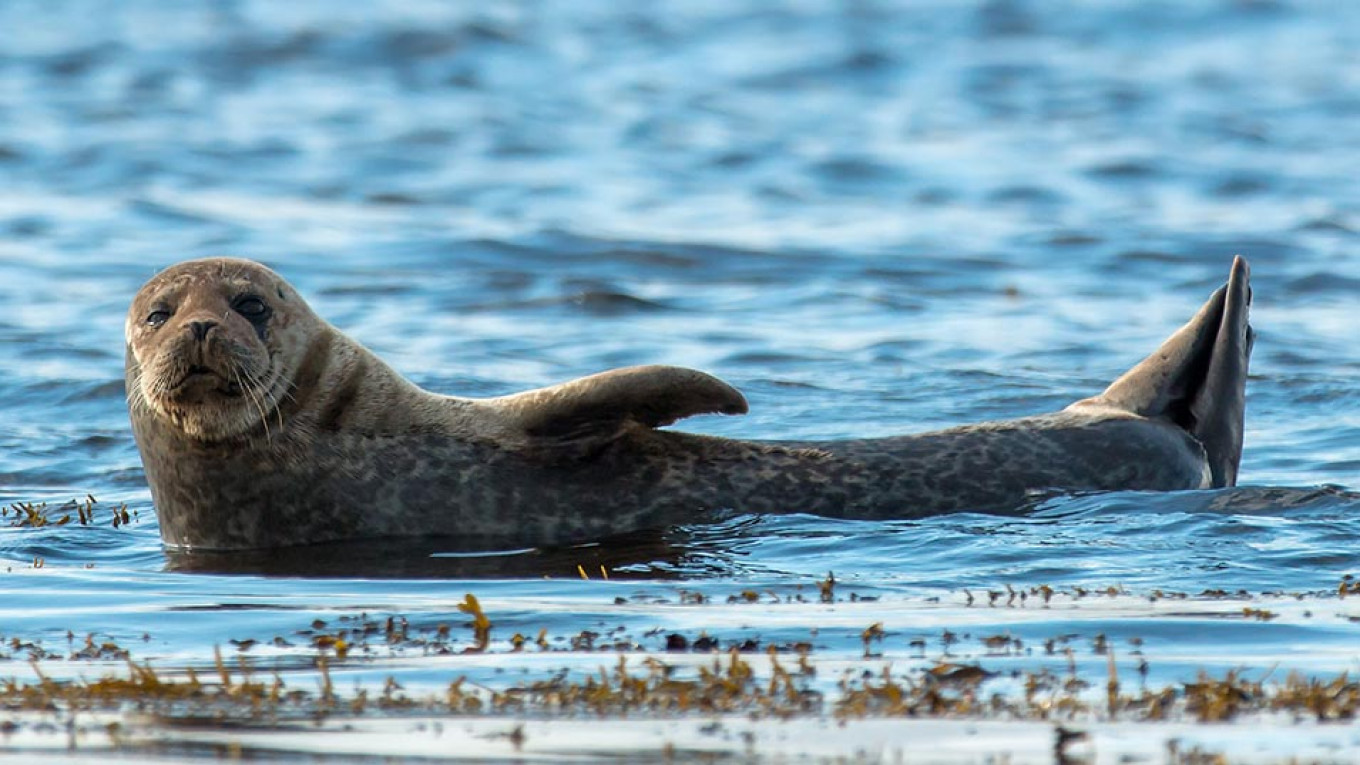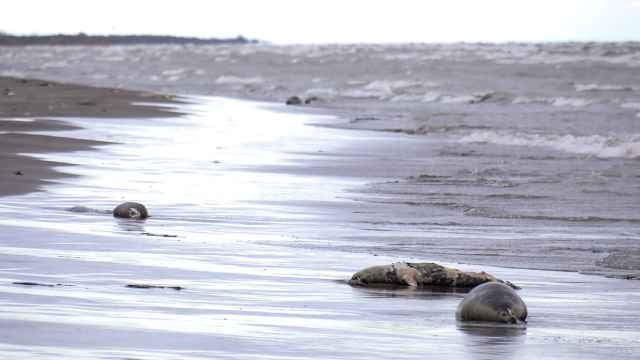Record high temperatures in northern Russia this winter have prevented sea ice from forming, threatening the birth of baby seals as the pupping period approaches, a local NGO has warned.
Thousands of ringed and grey seals live in the waters of the Gulf of Finland and Lake Ladoga near the city of St. Petersburg, which has seen temperatures more than 10 degrees Celsius above average this winter. Female seals typically burrow lairs into the snow that collects on sea ice to protect their pups from the cold and predators.
“This year, not only is there no snow, but there isn’t even any ice on the sea, and the predictions say that there won’t be any by February, which is when the seals usually give birth,” Elena Andriyevskaya, the founder of the Friends of the Baltic Seal Foundation, told The Moscow Times.
As a result of the warm temperatures, female seals have been forced to seek shelter near coastlines where they have been battered by waves and wind – and where they are likely to give birth to their pups if sea ice continues to be absent.
The Foundation posted a video taken by lighthouse workers of a female seal trying to take shelter on a rock formation in the sea, with a comment saying: “This is what the conditions are like for seals this winter.”
Dozens of baby seals risk being stranded on the shore or in the open sea if sea ice doesn’t form in the coming weeks, Andriyevskaya said.
“If nothing changes, we are in store for an epic rescue season,” she added, estimating that her NGO has the capacity to rescue about 40 seal pups from the open sea.
Ringed and grey seals are listed as endangered species in Russia.
Temperatures in St. Petersburg have broken historic records four times in January so far, with abnormally high temperatures expected to continue for the rest of the week.
A Message from The Moscow Times:
Dear readers,
We are facing unprecedented challenges. Russia's Prosecutor General's Office has designated The Moscow Times as an "undesirable" organization, criminalizing our work and putting our staff at risk of prosecution. This follows our earlier unjust labeling as a "foreign agent."
These actions are direct attempts to silence independent journalism in Russia. The authorities claim our work "discredits the decisions of the Russian leadership." We see things differently: we strive to provide accurate, unbiased reporting on Russia.
We, the journalists of The Moscow Times, refuse to be silenced. But to continue our work, we need your help.
Your support, no matter how small, makes a world of difference. If you can, please support us monthly starting from just $2. It's quick to set up, and every contribution makes a significant impact.
By supporting The Moscow Times, you're defending open, independent journalism in the face of repression. Thank you for standing with us.
Remind me later.






